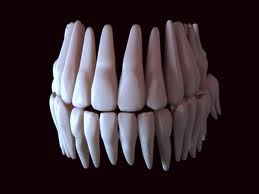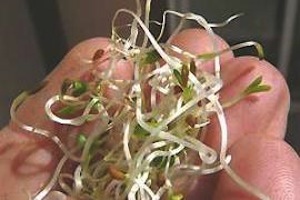As the death toll in the German E. coli O104 sprout outbreak rose to 50 with 4,121 ill including 845 with hemolytic uremic syndrome, Egypt’s ministry of agriculture said, don’t blame Egypt.
The head of Egypt’s Central Administration of Agricultural Quarantine, Ali Suleiman, said claims by the European Food Safety Authority (EFSA) that .jpg) Egyptian fenugreek seeds exported in 2009 and 2010 may have been implicated in the outbreak were "completely untrue."??
Egyptian fenugreek seeds exported in 2009 and 2010 may have been implicated in the outbreak were "completely untrue."??
"The presence of this bacteria in Egypt has not been proven at all, and it has not been recorded. He said the Egyptian company that exported the seeds in 2009 has stressed in a letter that it had exported the fenugreek to Holland and not to Germany, Britain or France.??
On Wednesday, the EFSA said a "rapid risk assessment" it conducted with the European Centre for Disease Prevention and Control (ECDC), had shown the Egyptian seeds could have been to blame.
The U.K. Food Standards Agency reiterated its advice that sprouted seeds should not be eaten raw, while Bloomberg reports that crudités – fancy French word for raw vegetables — eaten at a children’s center in Bordeaux are helping doctors in their two-month hunt for the source of the outbreak.
Michael Osterholm, director of the Center for Infectious Disease Research and Policy at the University of Minnesota, said, “Fenugreek is showing up clearly in the French outbreak and showing up clearly in the German outbreak.”
The link to fenugreek, a clover-like plant used as both an herb and a spice, was identified after disease investigators found it was served at an event attended by patients in the Bordeaux suburb of Begles.
A cold buffet was served consisting of crudites, or raw vegetables, three dips, industrially produced gazpacho, a choice of two cold soups, pasteurized fruit .jpg) juices and individual dishes composed of white grapes, tomatoes, sesame seeds, chives, industrially produced soft cheese and fruit, the report said.
juices and individual dishes composed of white grapes, tomatoes, sesame seeds, chives, industrially produced soft cheese and fruit, the report said.
The soups were served with fenugreek sprouts, a small amount of which were also placed on the crudite dishes. Mustard and rocket sprouts, still growing on cotton wool, were used to decorate the dishes, the authors said.
The sprouts had been grown from rocket, mustard and fenugreek seeds planted at the center the previous week. The seeds were bought from a branch of a national chain of gardening retailers, having been supplied by a distributor in the U.K., the authors said.
The European agencies advised consumers not to grow sprouts for their own use or to eat sprouts or sprouted seeds unless they have been thoroughly cooked.
 the Lille region of France earlier this year.
the Lille region of France earlier this year.
 poisoning recorded this morning by their doctor, following the consumption of hamburgers. "The remaining burgers were seized by the DGCCRF. Beyond the problem of the tooth, it is important to know if the lot was consumed," said Me Roulleau.
poisoning recorded this morning by their doctor, following the consumption of hamburgers. "The remaining burgers were seized by the DGCCRF. Beyond the problem of the tooth, it is important to know if the lot was consumed," said Me Roulleau..jpg) symptoms were mainly gastrointestinal: abdominal pain, vomiting, nausea and diarrhea.
symptoms were mainly gastrointestinal: abdominal pain, vomiting, nausea and diarrhea. Germany and one focused around the French city of Bordeaux.
Germany and one focused around the French city of Bordeaux. .jpg) Egyptian fenugreek seeds exported in 2009 and 2010 may have been implicated in the outbreak were "completely untrue."??
Egyptian fenugreek seeds exported in 2009 and 2010 may have been implicated in the outbreak were "completely untrue."??.jpg) juices and individual dishes composed of white grapes, tomatoes, sesame seeds, chives, industrially produced soft cheese and fruit, the report said.
juices and individual dishes composed of white grapes, tomatoes, sesame seeds, chives, industrially produced soft cheese and fruit, the report said..jpeg) "during re-packaging cross-contamination cannot be excluded."
"during re-packaging cross-contamination cannot be excluded.".jpg) of eight French cases so far, three of them carried the same bacteria strains as in Germany.
of eight French cases so far, three of them carried the same bacteria strains as in Germany..jpg) mustard vegetable sprouts were grown and served at a party at a creche near Bordeaux.
mustard vegetable sprouts were grown and served at a party at a creche near Bordeaux..jpg) same source as the seeds linked to the French cases.
same source as the seeds linked to the French cases.